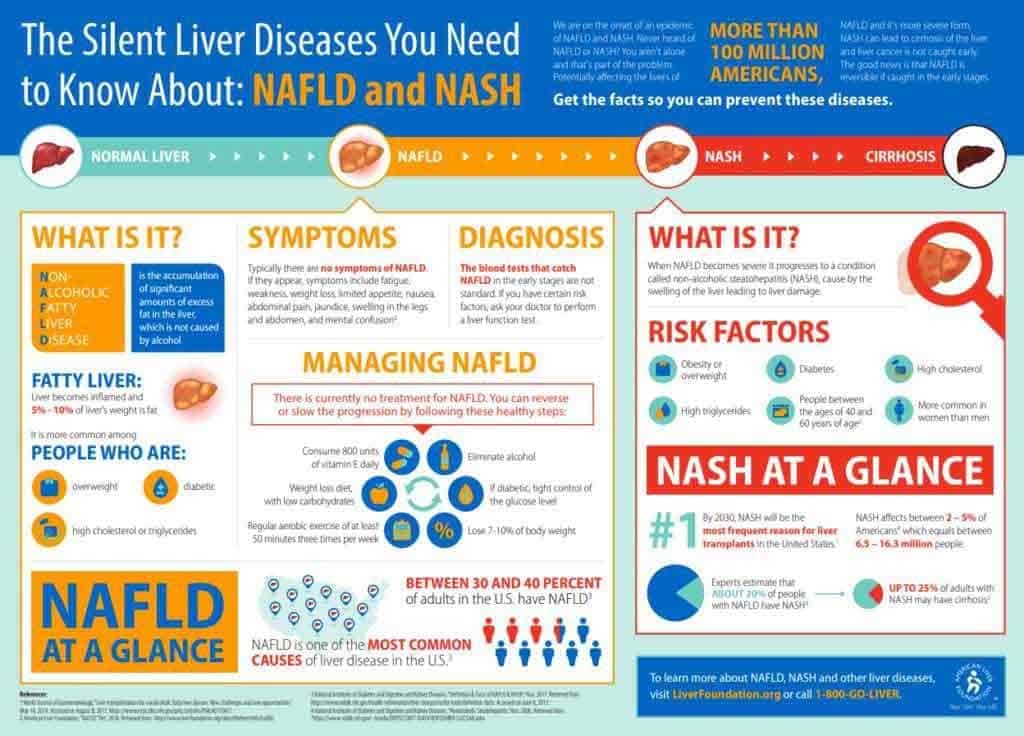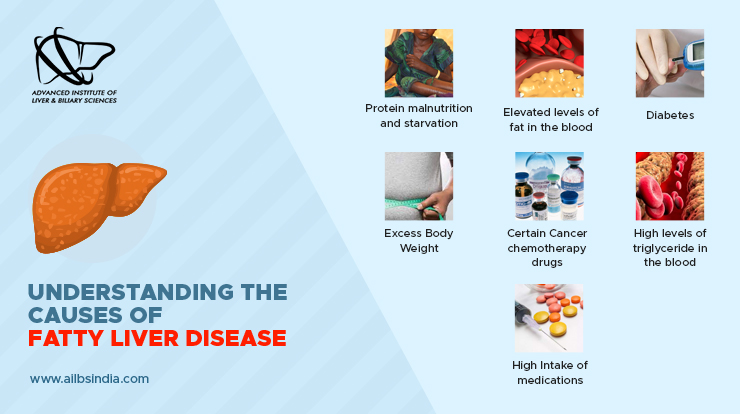Uncover the surprising triggers behind the rise of fatty liver disease. Are you unknowingly putting your liver at risk?
Table of Contents
- Introduction to Fatty Liver Disease
- Understanding the Liver
- What is Fatty Liver Disease?
- Symptoms of Fatty Liver Disease
- Causes of Fatty Liver Disease
- The Role of High Cholesterol
- Diet and Fatty Liver Disease
- How to Manage Fatty Liver Disease
- Prevention of Fatty Liver Disease
- When to See a Doctor
- Conclusion
- FAQs
Introduction to Fatty Liver Disease
Fatty liver disease is a condition that affects the health of our liver. Our liver is a crucial organ in our body that helps in various functions necessary for our well-being. Understanding how fatty liver disease impacts our liver is essential for maintaining overall health.
Understanding the Liver
The liver is a vital organ in our body that plays a crucial role in keeping us healthy. Let’s dive into what the liver does and why it’s important for our overall well-being.
What Does Our Liver Do?
Our liver is like a hardworking filter that cleans our blood by removing toxins and harmful substances. It also helps in digesting the food we eat by producing bile, a greenish-yellow liquid that breaks down fats. In simple terms, think of the liver as a superhero that fights bad stuff in our body and helps us stay strong and healthy.
Just like we need to take care of our bodies by eating fruits and vegetables, the liver needs some love, too. By understanding how the liver works, we can make better choices to keep it happy and functioning well.
What is Fatty Liver Disease?
Fatty liver disease is a condition where fat builds up in your liver cells. This can happen when we consume more calories than our body can burn, leading to an excess of fat stored in the liver. The liver is an essential organ in our body responsible for filtering blood, helping in digestion, and storing energy. If too much fat accumulates in the liver, it can lead to fatty liver disease.

Image courtesy of via Google Images
Types of Fatty Liver Disease
There are two main types of fatty liver disease: alcoholic fatty liver disease and non-alcoholic fatty liver disease. Alcoholic fatty liver disease is caused by excessive alcohol consumption, which can damage the liver over time. Non-alcoholic fatty liver disease, on the other hand, can occur in people who don’t drink much alcohol but have other risk factors such as obesity, high cholesterol, or diabetes.
Symptoms of Fatty Liver Disease
When it comes to fatty liver disease, there are specific symptoms that can clue you in on what’s happening in your body. Here are some common signs to watch out for:
Common Symptoms
1. Fatigue: Feeling tired all the time, even after getting enough rest, could be a sign of fatty liver disease.
2. Abdominal Swelling: Swelling in the belly area may occur due to the liver’s reduced ability to process fats.
3. Jaundice: Yellowing of the skin and eyes can be a sign of liver problems, including fatty liver disease.
4. Weight Loss: Unexpected weight loss without changes to diet or exercise could indicate an issue with the liver.
5. Nausea or Vomiting: Persistent nausea or vomiting can be related to fatty liver disease as the liver struggles to function properly.
If you notice any of these symptoms, it’s important to consult a healthcare provider for proper diagnosis and treatment.
Causes of Fatty Liver Disease
There are various factors that can contribute to the development of fatty liver disease. Understanding these causes can help us take steps to prevent or manage this condition.

Image courtesy of via Google Images
Diet and Lifestyle
One of the primary causes of fatty liver disease is an unhealthy diet and sedentary lifestyle. Consuming a diet high in processed foods, sugary beverages, and saturated fats can overload the liver and lead to the accumulation of fat. Lack of physical activity further exacerbates this issue, as exercise helps the liver convert fat into energy. Making healthier food choices and staying active are crucial in maintaining a healthy liver.
Genetics and Other Conditions
Genetics can also play a role in the development of fatty liver disease. If someone in your family has a history of liver conditions, you may be at a higher risk. Additionally, other health conditions such as obesity, insulin resistance, or high cholesterol can contribute to the onset of fatty liver disease. It’s essential to be aware of these factors and work with your healthcare provider to manage them effectively.
The Role of High Cholesterol
Cholesterol is a type of fat that is found in our blood and is important for building healthy cells in our body. There are two types of cholesterol: LDL (low-density lipoprotein) which is often called “bad” cholesterol and HDL (high-density lipoprotein) known as “good” cholesterol.
Cholesterol’s Impact on the Liver
When we have high levels of LDL cholesterol in our blood, it can lead to the buildup of fatty deposits in the liver. This can result in fatty liver disease, which is when the liver has more than 5-10% fat content. Having high cholesterol can increase the risk of developing this condition.
Diet and Fatty Liver Disease
When it comes to fatty liver disease, what we eat plays a crucial role in our liver health. Some foods can worsen the condition, while others can help keep our liver healthy.

Image courtesy of via Google Images
Foods to Avoid
Certain types of food can increase the risk of developing fatty liver disease. These include high-sugar and high-fat foods, sugary beverages, processed snacks, and fried foods. Consuming too much of these can put extra strain on our liver, leading to fatty deposits.
Liver-friendly Foods
To promote liver health, it’s essential to include liver-friendly foods in our diet. Some examples of these foods are fruits, vegetables, whole grains, lean proteins like fish and chicken, and healthy fats such as those found in avocados and nuts. These foods provide essential nutrients that support liver function and overall health.
| Triggers of Fatty Liver Disease | Description |
|---|---|
| Obesity | Excess body weight, especially around the waist, can lead to fatty liver accumulation. |
| Poor Diet | Consumption of high amounts of processed foods, sugars, and unhealthy fats can contribute to fatty liver disease. |
| Insulin Resistance | When the body becomes resistant to insulin, it can lead to an increase in fat storage in the liver. |
| Genetics | Some people may be genetically predisposed to developing fatty liver disease. |
How to Manage Fatty Liver Disease
One of the most important ways to manage fatty liver disease is by making positive lifestyle changes. This includes eating a healthy diet, getting regular exercise, and avoiding harmful substances like alcohol and tobacco. By incorporating more fruits, vegetables, and whole grains into your diet, you can help your liver function better and reduce the buildup of fat in the liver.
Exercise is also crucial for managing fatty liver disease. Regular physical activity can help you maintain a healthy weight, improve your cholesterol levels, and reduce inflammation in the body. Aim for at least 30 minutes of moderate exercise most days of the week to keep your liver healthy.
Medical Treatments
In some cases, medical intervention may be necessary to manage fatty liver disease. Your doctor may recommend medications to help control your cholesterol levels, reduce inflammation, or manage other underlying conditions that are contributing to your liver disease.
Your healthcare provider may also suggest regular monitoring of your liver health through blood tests and imaging studies to track the progression of the disease and adjust your treatment plan as needed.
Prevention of Fatty Liver Disease
When it comes to keeping our liver healthy and preventing fatty liver disease, there are some essential steps we can take. Making smart choices in our daily lives can go a long way in protecting our liver health. Here are some key strategies for preventing fatty liver disease:

Image courtesy of via Google Images
Regular Exercise
One of the best ways to maintain good liver health is by staying active. Exercise not only helps us keep our weight in check but also plays a crucial role in keeping our liver functioning properly. Whether it’s playing sports, dancing, or simply going for a walk, moving our body regularly is a great way to prevent fatty liver disease.
Regular Check-ups
Another important aspect of preventing fatty liver disease is staying on top of our health by scheduling regular check-ups with our doctor. These check-ups are essential for monitoring our liver health and catching any potential issues early on. By working closely with our healthcare provider, we can take proactive steps to prevent fatty liver disease and maintain overall well-being.
When to See a Doctor
It’s important to pay attention to our bodies and recognize when something might not be quite right, especially when it comes to our liver health. If you experience any symptoms that could be related to fatty liver disease, it’s crucial to seek medical advice promptly. Here’s when you should consider scheduling a visit to the doctor:
Signs and Symptoms
If you notice that you are feeling more tired than usual, have unexplainable weight loss, or pain in the upper right abdomen of your body, these could be signs of fatty liver disease. It’s essential not to ignore these symptoms and speak to a healthcare provider as soon as possible.
Deteriorating Health Condition
If you have been previously diagnosed with fatty liver disease and find that your condition is worsening or if you have been following a recommended treatment plan but aren’t experiencing any improvement, it’s a sign that you should consult with a doctor. Seeking medical advice is crucial in these situations to prevent further complications.
Persistent Concerns
Even if you are not experiencing any symptoms but have concerns about your liver health, it’s a good idea to talk to a healthcare professional. Whether it’s due to family history of liver-related issues or other health conditions you might have, discussing these concerns with a doctor can help in identifying and managing any potential risks early on.
Conclusion
In conclusion, understanding fatty liver disease is crucial for maintaining a healthy liver. We have learned about the different triggers that can lead to fatty liver disease, including high cholesterol levels, poor diet, and genetic factors. By recognizing the symptoms early on, individuals can take steps to manage their condition effectively.

Image courtesy of via Google Images
Managing fatty liver disease involves making lifestyle changes such as eating a balanced diet, staying physically active, and seeking medical advice when necessary. Prevention is key in keeping our liver healthy, which includes regular exercise and check-ups to monitor its well-being.
By being proactive and informed about fatty liver disease, individuals can take control of their health and reduce the risk of developing serious complications. Remember, a healthy liver is essential for overall well-being, so it’s important to prioritize liver health in our everyday lives.
FAQs
What Causes Fatty Liver Disease?
Fatty liver disease can be caused by various factors, including an unhealthy diet, lack of exercise, genetics, and certain medical conditions. Eating too much unhealthy food like fried and processed items can contribute to the buildup of fat in the liver. Similarly, if you don’t move your body enough through exercise, this can also lead to fatty liver disease. Additionally, some people may inherit a predisposition to this condition from their family.
How Does Diet Affect Fatty Liver?
Your diet plays a significant role in the development and management of fatty liver disease. Consuming foods high in sugar, unhealthy fats, and excessive calories can worsen the condition. It is important to avoid sugary beverages, fast food, and processed snacks. Instead, opt for a balanced diet rich in fruits, vegetables, whole grains, and lean proteins to support liver health and reduce the risk of fatty liver disease.
What Are Common Symptoms of Fatty Liver Disease?
Some common symptoms of fatty liver disease include fatigue, abdominal pain, swelling in the abdomen, and yellowing of the skin and eyes. However, it’s essential to remember that fatty liver disease may not always present noticeable symptoms, especially in the early stages. This is why regular check-ups with your doctor are important to monitor your liver health.





